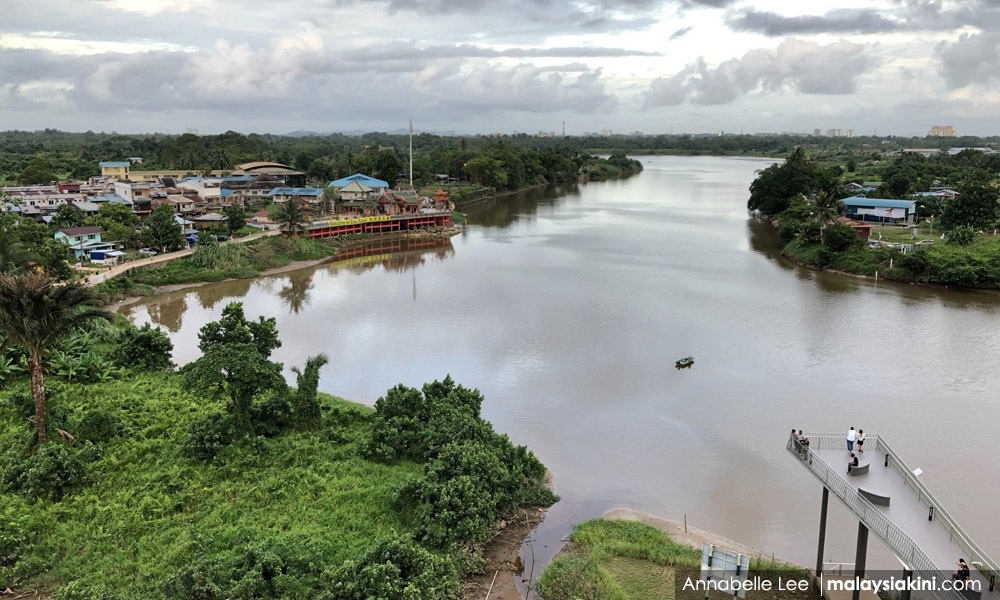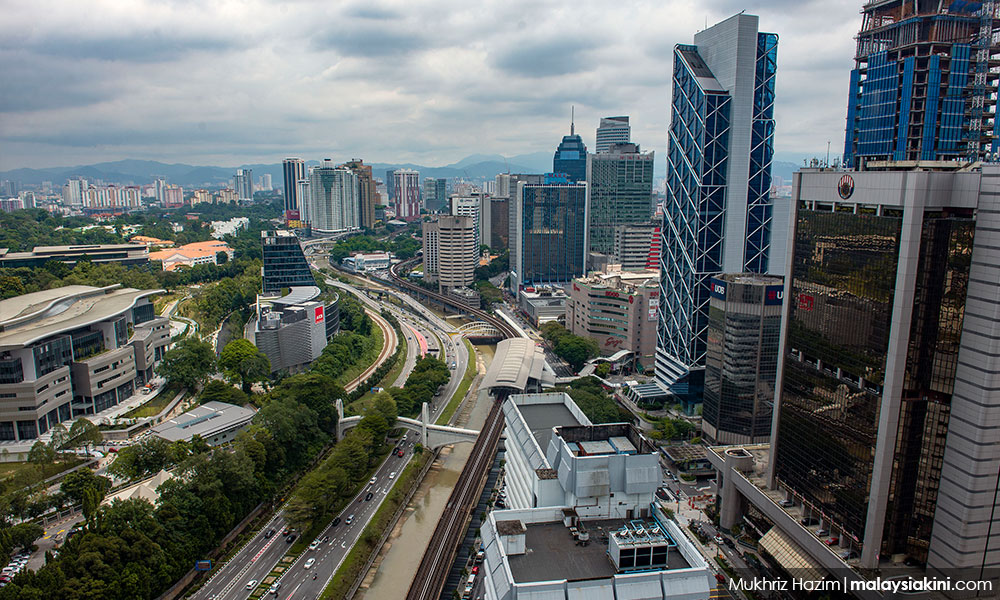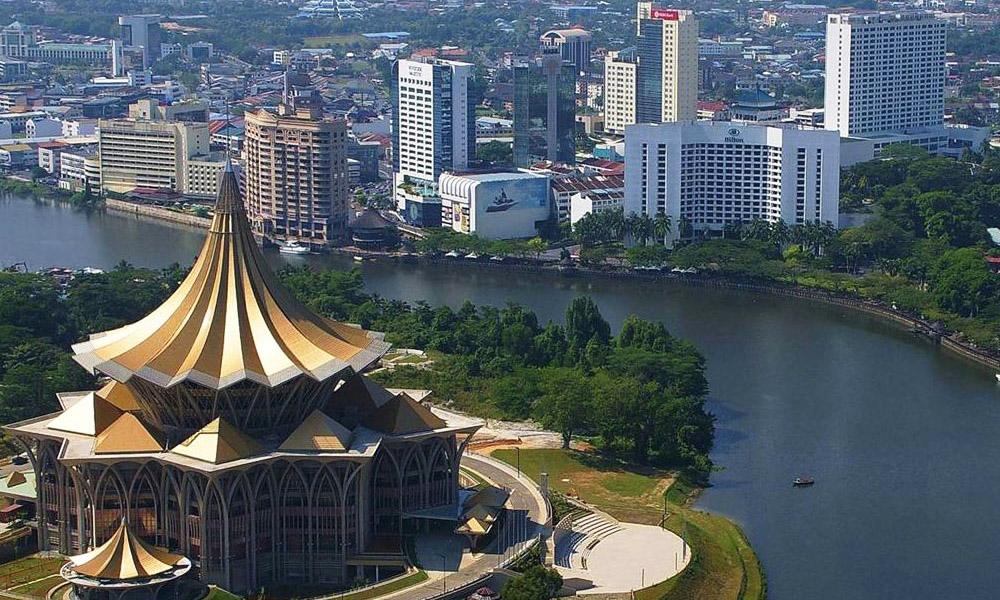A few days ago, I received an interesting email from a Malaysiakini reader asking me about the possibility of Peninsular Malaysians (read Malayans) migrating to Sarawak.
I thought that was a good and valid question and one which I felt was important enough to pay attention to.
I took the trouble to follow up and share the email with four ministers from Sarawak (two serving in Sarawak and two at the federal level) as they were in a better position to respond and with more credibility on the subject than me.
I am penning this here as a public sharing as I believe many others would also like to know about migration to Sarawak and its requirements/criteria.
However, as I did not obtain their permission to use their names in this article, I will quote them anonymously. I believe they do not mind sharing their views which are “useful and relevant” to the public at large.
The responses are edited for brevity and clarity.
First, this is the reader’s email received on July 5: “Hello Francis Siah, I wonder if Malaysians from the peninsula want to migrate to Sarawak, especially non-Malays, would the Sarawak government welcome them?
“Like those talented ones who went to Singapore to study and work; they could also help Sarawak to develop and progress like Singapore.
“The bottom line is: Would Sarawak be prepared to defy those clowns in the federal government and accept the non-Malay Malaysians to start a new life in Sarawak? I would like to hear your comments on this.
“Instead of going to Australia, New Zealand etc., peninsular Malaysians can also further their studies in Sarawak. That is, if the Sarawak government could build more English medium schools and universities to cater for other ‘unfortunate’ Malaysians in Peninsular Malaysia! Yours sincerely, X.X.Xxx”
I replied the next day, saying that I would try to obtain a more authoritative answer on the subject by knocking on some doors in Sarawak.
All four ministers who received my request were kind enough to respond. Here are their replies.
Minister 1
“Sarawak does not decide on applicants for Sarawak PR (Permanent Resident) based on race or religion. There are standard criteria in our immigration permit to stay in Sarawak for any non-Sarawakian, be it for work or study.
“Every non-Sarawakian, including those in Federal Civil Service, needs a work permit (renewable yearly) to work and stay in Sarawak. To be a Sarawak PR, one of the criteria is you have to be in Sarawak for 10 years with a yearly work permit. This is only for Sarawak PR; you do not become a Sarawakian.
“Additionally, the Sarawak government will introduce a five-year visa for certain technical or specialised fields soon as part of PCDS 2030 (Post Covid-19 Development Strategies 2030).”

Minister 2
“On the question of Peninsular Malaysians wanting to migrate to Sarawak to study and work, the general rule is since the formation of Malaysia in 1963, Sarawak has immigration autonomy.
“This means that any non-Sarawakian, including Peninsular Malaysians, wanting to enter Sarawak, the state government will have the absolute right to allow or disallow the entry of such person. For now, the state government will continue to be firm on this.
“Working in Sarawak - presently, there are some Peninsular Malaysians working in Sarawak with Petronas, Shell, and other companies, including international companies and Malaysian companies in Sarawak. They are issued work permits. There are also some Peninsular Malaysians who set up their companies in Sarawak.
“Studying in Sarawak is Not an issue at all. Many of the children of those having work permits do study in national schools, private schools and Chinese Independent Middle Schools in Sarawak and local universities too.
“In addition, there are few hundred students from the peninsula (whose parents are not working or staying in Sarawak) studying at Curtin University Miri, Swinburne University Kuching and some at UTS Sibu.
“Upon their graduation, some of them stay back in Sarawak and do find work in Petronas, Shell and other companies.
“Finally, English is our second official language, and the Sarawak government wants English to be taught in national schools in Sarawak. We will continue to promote English and encourage Sarawakians to master the language.”

Minister 3
“I recall hearing our premier’s speech recently during our PBB Convention where he said that ‘if we want to be a developed entity, we need to open up to people from outside Sarawak’.
“We have to learn from them. We cannot afford to have only Sarawakians working in Sarawak. We welcome others too, especially those who have the relevant skills that we need.
“Our premier mentioned no race or religion. Sarawak is clear on what we want.
“We welcome our very own Sarawakians who had lived in other countries to return and contribute to our homeland, especially now that we are going into hydrogen and a digital economy. I am observing the various openings in Sarawak.
“As we move forward with modern and advanced technology, we require skilled knowledge from our young people from diverse groups. I observed them because I am concerned about the future of Sarawak.
“We are also blessed with inter-racial marriages among our local populace. These days, it’s common to come across non-pure Malays, Dayaks, Chinese and others due to mixed marriages.
“I believe Sarawak will continue to be liberal and fair as we aim for “developed” status by 2030.”

Minister 4
“Immigration in whatever form has positive and negative impacts on any society. There is a book written by an English author at the height of Eastern and African immigration to Europe in the mid-2000, which is a good reading to understand migration and its impact.
“It is imperative for host nations to attract higher rungs and quality immigrants, but what did we get in Malaysia – Bangladeshis and Rohingyas. Immigration policies must be correct and attractive.
“The state must not be too narrow-minded on the issue of migration. Look at the US, built by immigrants, so is Singapore. We should not assume what another could, we could do too. We must beat our own path and smartly too.
“Another point is to attract and keep talents. Why are we not successful? Remember this - no two persons require the same thing, and neither does one policy fits all.
“Government policies must be flexible and implementers are not book and rules-bound!”
Put Sarawak in the same shoes as Malaysia. There are lessons for Sarawak, and we must not make the same mistakes. - Mkini
FRANCIS PAUL SIAH is a veteran Sarawak editor and heads the Movement for Change, Sarawak (MoCS). He can be reached at sirsiah@gmail.com.



No comments:
Post a Comment
Note: Only a member of this blog may post a comment.